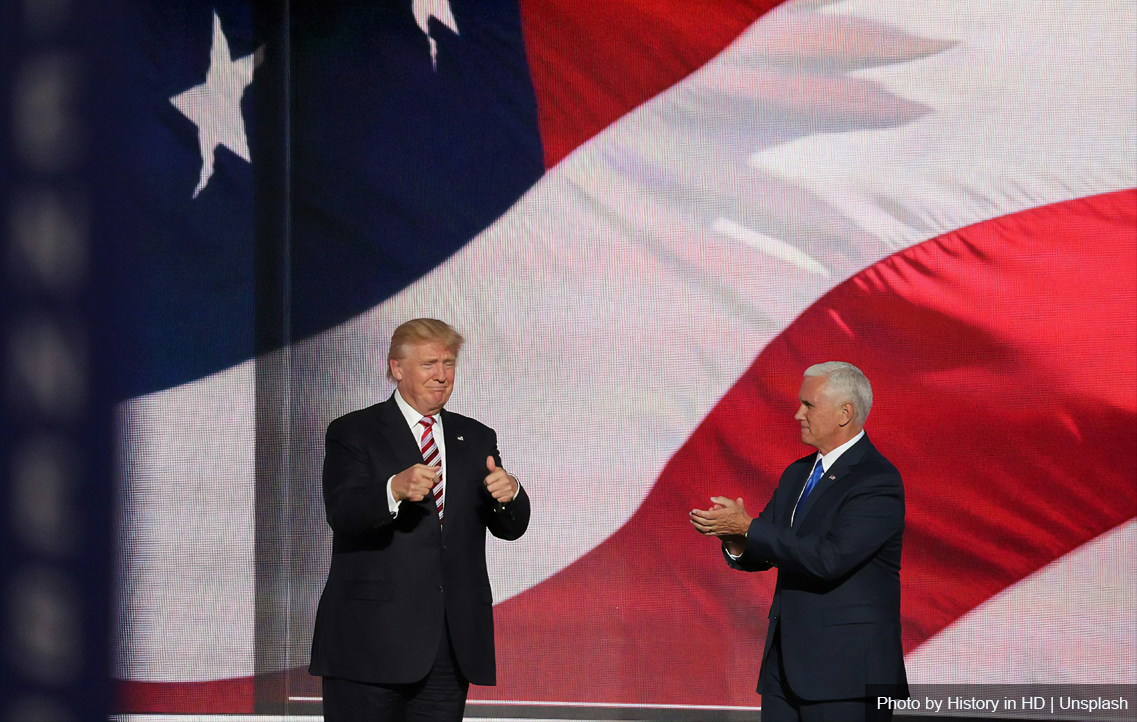
Once every four years, the world holds its breath when the American people go to the polls to elect their president, vice-president, senators, congressmen, governors and other officials. It does so because what happens in America will affect it in one way or another.
The 2024 elections were full of drama and unexpected twists and turns. The Democratic Party’s candidate, President Joe Biden, stepped aside in favour of his Vice-President Kamala Harris after a disastrous debate with the Republican candidate, Donald Trump. Although Ms Harris campaigned brilliantly, it would appear that America is not ready yet to elect as president a woman of mixed South Asian-black heritage.
Prior to the election, many analyses went into former president Trump’s “America First” instincts and how that could affect US relations with other countries. Now that it is clear that from January 2025, he will return to the White House for another four-year term, what are the implications for Singapore and, more broadly, Asean?
First, a caveat. We do not know at this time who Trump will appoint as his secretaries of state, defence and the treasury, and national security adviser and chief of staff. The composition of his Cabinet matters because they will be key to shaping the administration’s policies. My comments on the outlook ahead are therefore limited to what one could reasonably infer from his record during his first term in office.
On Singapore
Singapore-US relations during the first Trump administration were good and Trump had a very favourable attitude towards Singapore for three reasons.
First, he was pleased with the fact that the US enjoyed a trade surplus with Singapore. In his dealings with other countries, Trump tends to be suspicious of countries that enjoy a trade surplus with the United States.
Second, in 2019, Trump and Singapore’s then Prime Minister Lee Hsien Loong extended the life of the 1990 Memorandum of Understanding between the two countries until 2035. Under the MOU, the Singapore Government allows the US Navy and Air Force access to the country’s military facilities for transit and logistics support. That is a plus in Trump’s view as it makes Singapore a major security cooperation partner.
Third, in 2018, when Trump looked for a venue for his summit meeting with North Korean leader Kim Jong Un, he chose Singapore. He chose Singapore because of its safety, efficiency and reliability.
On Asean
Trump’s record on Asean is more problematic. He attended only one Asean Summit during his four years in office from 2017 to 2021. He did not host a US-Asean Summit during his presidency.
I think Trump and his advisers understood the strategic and economic importance of Asean and South-east Asia. The problem was that he did not like multilateral institutions and long-distance travel.
Asean should therefore lower its expectations and not expect Trump to attend its annual summits. Asean should be satisfied if the US is represented by its vice-president or secretary of state.
Possible trouble areas
Are there any likely areas of divergence between the US, under a second Trump administration, and Singapore and Asean?
I will just mention three potential trouble areas.
First, Trump is likely to withdraw, for the second time, from the Paris Agreement on climate change. This will be a setback, not just for Asean, but for the whole world.
Second, Asean would be affected if Trump were to carry out his election narrative to impose a 10 per cent to 20 per cent tariff on all imports and a 60 per cent tariff on imports from China. Free trade is the lifeblood of Asean. Raising tariffs will be inimical to Asean’s core interests.
Third, Asean remembers that it was during Trump’s first term that the US embarked on trade and technology restrictions against China. Asean would be very concerned if the US-China relationship, which is tense, were to get worse and to threaten the stability of the region.
In conclusion, I am very confident that the excellent relationship between the US and Singapore will continue during Trump’s second term.
But given the areas in which Asean and the US have divergent views and interests, Asean will have to lower its expectations of what to expect from Trump in his second term. And that includes showing up at its summits.
Tommy Koh is Ambassador-at-Large at the Ministry of Foreign Affairs.
Top photo from Unsplash.
